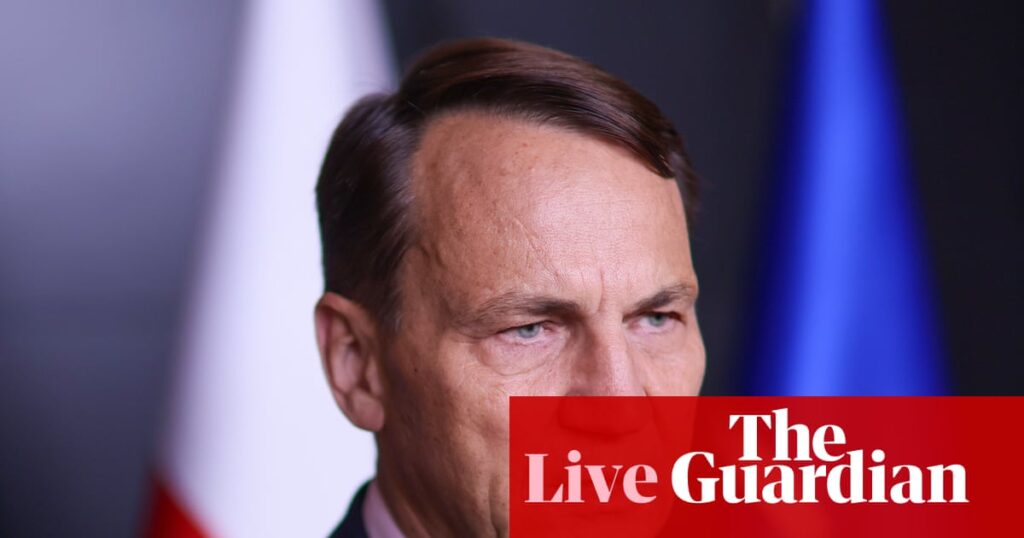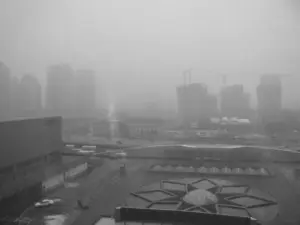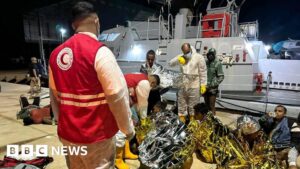
In a powerful address to the Polish parliament, Foreign Minister Radosław Sikorski condemned recent rail sabotage incidents as an “act of state terrorism” by Russia. The incidents, which occurred over the weekend, were described by Sikorski as having a “clear intention to cause human casualties.” His remarks underscore the escalating tensions between Poland and Russia, as he warned of a “tsunami” of disinformation surrounding the attacks.
Sikorski emphasized that Poland would respond to these acts “not only diplomatically,” though he refrained from providing specific details. This development follows a series of diplomatic strains between the two nations, as Poland has been increasingly vocal about its security concerns in the face of Russian actions.
Poland’s Diplomatic and Strategic Response
In a significant move, Poland has decided to withdraw consent for the last remaining Russian consulate in Gdańsk. This decision comes after previous closures of Russian consulates in Poznań and Kraków, which were also linked to alleged Russian-inspired sabotage. The Polish government’s actions reflect a broader strategy to counter what it perceives as Russian aggression.
Meanwhile, Sikorski announced plans to discuss the situation with NATO Secretary General Mark Rutte and brief the European Union’s Foreign Affairs Council. He intends to urge EU countries to restrict the movements of Russian diplomats, citing concerns that up to 40% of them may be involved in intelligence activities.
Regional and International Reactions
The Kremlin has responded to Poland’s decision to close the consulate by expressing regret and labeling the move as lacking “sanity.” This statement highlights the deepening rift between Moscow and Warsaw, as both sides engage in a war of words over the recent incidents.
In a related development, Russia’s defense ministry announced “massive” overnight strikes on western Ukraine. These attacks, described as a response to “terrorist attacks” on Russian territory, resulted in the deaths of at least ten people and wounded forty others. Ukrainian President Volodymyr Zelenskyy condemned the strikes, calling for increased international pressure on Russia.
“Every brazen attack against ordinary life proves that the pressure on Russia is still insufficient,” Zelenskyy stated.
Poland’s Position in the European Union
During his parliamentary address, Sikorski also defended Poland’s membership in the European Union against rising Eurosceptic sentiments. He cited the economic challenges faced by the United Kingdom post-Brexit as a cautionary example, arguing that Poland would fare worse outside the EU.
“Nearly ten years after Brexit, the promised benefits still haven’t realized for the British people. And we are talking about one of the world’s largest economies, after all. Do you really believe that Poland will fare better outside the community?” Sikorski questioned, highlighting the ongoing debate within Poland about its future in the EU.
Implications and Future Outlook
The rail sabotage incidents and subsequent diplomatic fallout underscore the fragile security environment in Eastern Europe. Poland’s actions reflect a broader trend of Eastern European countries seeking to bolster their defenses against perceived Russian threats. Slovakia, for example, has requested NATO to enhance its air defenses, highlighting regional security concerns.
As Poland navigates these complex international dynamics, its government faces the challenge of balancing national security interests with diplomatic engagement. The unfolding situation will likely have significant implications for Poland’s foreign policy and its role within the European Union.
Looking ahead, the international community will be closely watching how Poland and Russia manage their strained relations. The potential for further escalations remains, as both countries continue to assert their positions on the global stage.







